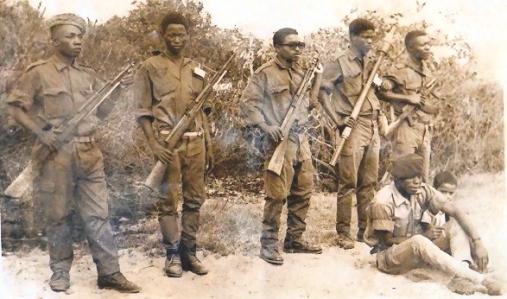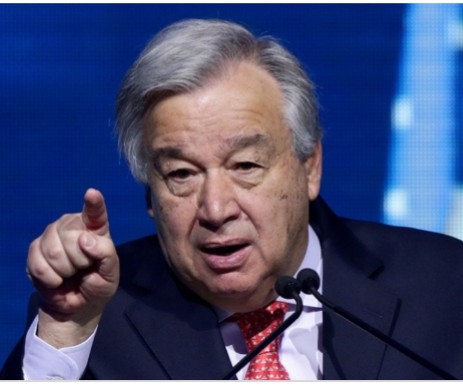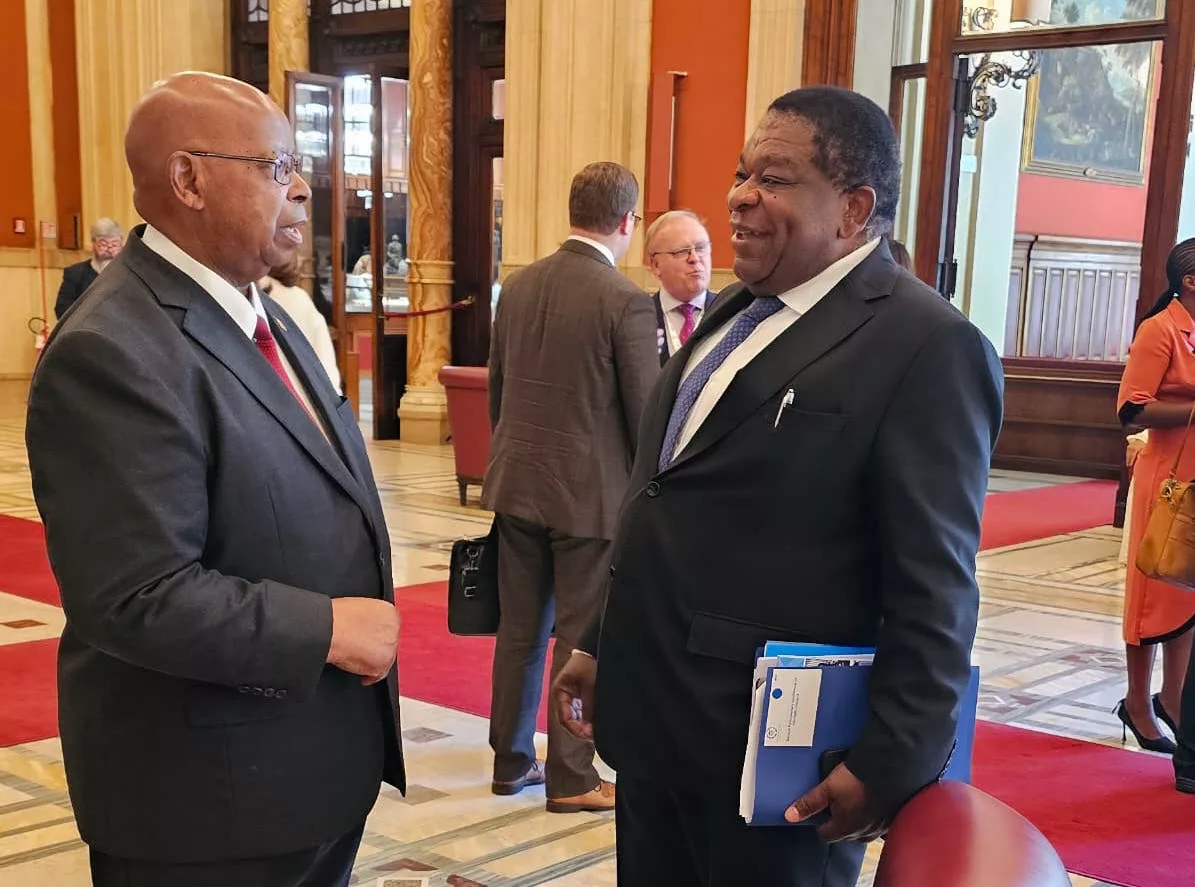By Sandra Kudenga
Zimbabwe’s problems with honouring citizens’ civil and political rights may just be down to its being ruled by former child soldiers who were never rehabilitated.
And current political horrors – killings, abductions, tortures, sexual abuse, intimidation and the use of brute force or the threat of it to achieve political goals is a manifestation of an unresolved problem.
The story of the young boys and girls who make up the guerrilla army that waged war against the colonial Ian Smith who are now in charge of the country is missing a crucial narrative – that their business was killing.
This was a protracted war, and a bloody one for that matter.
After going through the trauma of war as children and on the frontline and being themselves wagers of that bloody conflict – including being sexually violated, arrested and tortured, it may be to ask too much to expect them to be normal socialised adults, let alone democratic leaders.
President Emmerson Mnangagwa, his deputy (Rtd) General Constantino Chiwenga and the chairperson of the ruling Zanu PF party Oppah Muchinguri among the current crop of Zimbabwe’s leaders are all former child soldiers.
The president still recounts the horrors of arrest and torture he suffered and was only spared the hangman’s noose because by the time he was arrested he was underage.
The term ‘child soldier’ was defined by the United Nations Children’s Fund (UNICEF) in the Cape Town Principles as ‘any person under 18 years of age who is part of any kind of regular or irregular armed force in any capacity’ (UNICEF, 1997).
This is a blind side to the analysis and understanding of Zimbabwe’s failed policies and politics.
Containing its rabid, and often violent, political contestation demands that we do this – now more than ever.
The least we can do as Zimbabweans is to understand our liberators who have now morphed into a ruthless kleptocracy with their poorly raised children flaunting their wealth to a starving nation that is forced to bear their parents’ misrule.
The issue of the well-being of former child soldiers is, however, far more complex than a simple tally of the effects of war on those who are killed, wounded, injured, or exploited.
Studies in a special section on children and disaster in the July/August 2010 issue of the journal Child Development offer snippets into the issues which obviously call for further research.
In the first study, researchers found that former child soldiers from Sierra Leone who lived in communities in which they felt accepted were less depressed and more confident, and children who were able to stay in school showed more positive attitudes and behaviours.
However, these protective factors didn’t fully counterbalance the war-related trauma the children experienced.
In the second study, researchers found that the former child soldiers from Uganda who adapted the best were those who returned to less violent homes and communities. These children also had fewer feelings of survivor guilt, less motivation to seek revenge, better socioeconomic situations, and more perceived spiritual support.
In Zimbabwe the landscape was always complex deep mistrust between the two major ethnic groupings – the Shona and the Ndebele as well as with the white colonialists against which they waged war.
The armed guerrilla armies were resultantly mainly built around these tribal lines and operating mainly in their ethnic homes with a lot of indoctrination which meant they would fight amongst each other during the liberation war.
Their fighting against each other at Morogoro training camp in Tanzania in the mid-1970s is well documented.
All these were a precursor to the Gukurahundi massacres in which a predominantly Shona North Korean trained brigade killed over 20 000 Ndebele speaking people in Matebeleland and Midlands provinces and the violent seizure of white-owned commercial farms at the turn of the millennium.
The likes of the late President Robert Mugabe might have been older and not as affected as the current crop of leaders to the traumas of war but the ones who are in charge of the country now have always been the enforcers of his brutal rule.
President Mnangagwa – a cunning and sly hardman, has always been in charge of the ruling party’s military faction that has been playing the guardian role, stepping in with violence whenever it faced political problems.
This was at its worst during Gukurahundi, during the 2000 elections and in the 2008 run-election bloodbath with tables turning against the late former President Mugabe in 2017 when he fired his then deputy President Mnangagwa form both government and the party.
Taught to have their way through violence as children and running war machines for decades, our current rulers have only been perfecting their art of war.
They feel that since they won independence for us, they – like the children of war they still are, own the country and still see enemies in everyone who disagrees with their opinions and perception of issues.
Today, despite international bans, more than 250,000 children fight as soldiers in 86 countries across the globe, almost half of them in Africa – setting it up for future problems if these current combatants are not managed appropriately.
Zimbabwe is offering eloquent evidence on why they can not be ignored and allowed to just grow and even assume positions of leadership.
They will violently oppose all divergent views and haunt their citizens out of their homes to foreign lands – destroying families and burdening other countries with their problems in the process.
Sandra Kudenga is a nurse and a political activist who escaped Zanu PF harassment and has been living in the UK for the past 18 years.






